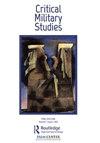Voices of veteran researchers
Q1 Arts and Humanities
引用次数: 0
Abstract
The ‘voice of the veteran’ is simultaneously over and under-represented in our society and our scholarship alike (Bulmer and Jackson 2015). Veterans’ voices are both privileged and marginalized, their stories glorified and vilified, their subjectivity either militarized or demilitarized, and their experiences both banal and extraordinary (Kelly 2013; Tidy 2015; Bulmer and Eichler 2017; Wool 2015). The figure of the veteran suffers from an ‘over-determination’ of meaning and an impoverished language to explore it, such that negotiating a veteran identity can become overwhelmingly complicated (Macleish 2013; Caddick Forthcoming). Veterans’ voices are a site of contestation related to their authenticity, and mediated or performative nature (Tidy 2015; Woodward and Jenkings 2011). Within scholarship, military experience either bestows legitimacy upon the author (e.g. traditional war studies, see Antrobus and West 2022), or invites suspicion (e.g. some anti-militarist feminist scholars, see Duncanson 2013). In this special issue we move away from attempting to determine the meaning of the veteran’s voice in research, and instead reflect on the contingent and contextual emergence of voices, how stories are made, and what reflective labour is undertaken, when veterans critically engage with their experience in their academic research. We foreground the ‘disruptive potential’ (Basham and Bulmer 2017, 62) of veterans’ voices by bringing their unique and complex positionality to ‘throw light onto the dark recesses of the military interior’ (Ware 2016, 240). We bring together an interdisciplinary collection of contributors with different military experiences to think about their voices and contribution in new ways. This special issue emerged from a series of workshops and panels held over the last eighteen months by both the European International Studies Association and the Defence Research Network, funded by the Volkswagen Stiftung (Cooperation Agreement 2134–002) and the Defence Studies Department, King’s College London. These workshops and panels provided a space for dialogue between our authors, their past selves, and their academic expertise, using conversation as ‘an alternative mode of research praxis’ (Bulmer and Jackson 2015).资深研究人员的声音
“老兵的声音”在我们的社会和我们的学术界同时被高估和低估(Bulmer和Jackson,2015年)。退伍军人的声音既有特权也有边缘化,他们的故事被美化和诋毁,他们的主体性要么被军事化,要么被非军事化,他们经历既平庸又非凡(Kelly 2013;Tidy 2015;Bulmer和Eichler 2017;Wool 2015)。退伍军人的形象存在着对意义的“过度确定”和探索意义的贫乏语言,因此谈判退伍军人身份可能会变得极其复杂(Macleish 2013;Caddick Forthcoming)。退伍军人的声音是一个与他们的真实性、中介性或表演性有关的争论场所(Tidy 2015;Woodward和Jenkings,2011年)。在学术界,军事经验要么赋予作者合法性(例如,传统战争研究,见Antrobus和West 2022),要么引起怀疑(例如,一些反军国主义女权主义学者,见Duncanson 2013)。在这期特刊中,我们不再试图确定退伍军人声音在研究中的意义,而是反思声音的偶然性和情境性出现,故事是如何制作的,以及当退伍军人批判性地参与他们的学术研究时,进行了哪些反思性劳动。我们展望了退伍军人声音的“破坏性潜力”(Basham和Bulmer 2017,62),通过将他们独特而复杂的位置“照亮军事内部的黑暗角落”(Ware 2016240)。我们汇集了一批具有不同军事经验的跨学科贡献者,以新的方式思考他们的声音和贡献。这期特刊来自欧洲国际研究协会和国防研究网络在过去18个月举办的一系列研讨会和小组讨论会,由大众基金会(合作协议2134–002)和伦敦国王学院国防研究系资助。这些研讨会和小组讨论会为我们的作者、他们过去的自己和他们的学术专业知识之间的对话提供了空间,将对话作为“研究实践的另一种模式”(Bulmer和Jackson,2015)。
本文章由计算机程序翻译,如有差异,请以英文原文为准。
求助全文
约1分钟内获得全文
求助全文
来源期刊

Critical Military Studies
Arts and Humanities-History
CiteScore
1.90
自引率
0.00%
发文量
20
期刊介绍:
Critical Military Studies provides a rigorous, innovative platform for interdisciplinary debate on the operation of military power. It encourages the interrogation and destabilization of often taken-for-granted categories related to the military, militarism and militarization. It especially welcomes original thinking on contradictions and tensions central to the ways in which military institutions and military power work, how such tensions are reproduced within different societies and geopolitical arenas, and within and beyond academic discourse. Contributions on experiences of militarization among groups and individuals, and in hitherto underexplored, perhaps even seemingly ‘non-military’ settings are also encouraged. All submitted manuscripts are subject to initial appraisal by the Editor, and, if found suitable for further consideration, to double-blind peer review by independent, anonymous expert referees. The Journal also includes a non-peer reviewed section, Encounters, showcasing multidisciplinary forms of critique such as film and photography, and engaging with policy debates and activism.
 求助内容:
求助内容: 应助结果提醒方式:
应助结果提醒方式:


